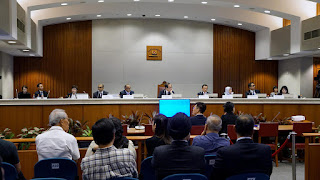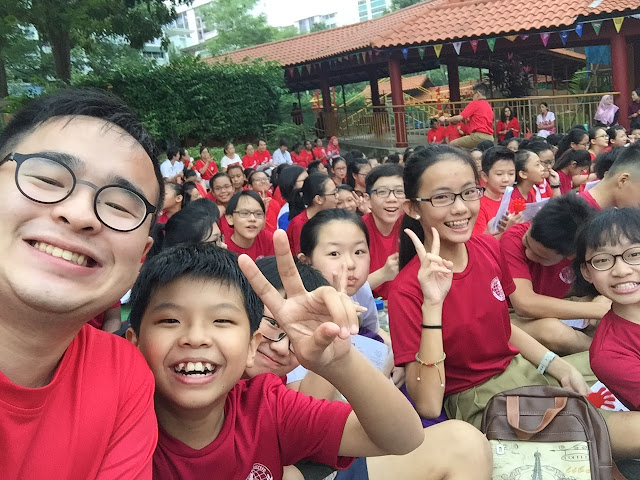Select Committee: Why so harsh?
BY SEAN LIM
EARLIER in the day, we read a statement from Home Affairs and Law Minister K. Shanmugam on why he grilled Dr Thum Ping Tjin during one of the public hearings on the Select Committee for deliberate online falsehoods.
EARLIER in the day, we read a statement from Home Affairs and Law Minister K. Shanmugam on why he grilled Dr Thum Ping Tjin during one of the public hearings on the Select Committee for deliberate online falsehoods.
To be frank, I was quite disappointed by the outcome of it - specifically, the way it was conducted
While the first few were held with civility, I am not sure if I can say the same about the hearings held in the recent week, especially when engaging the civil society. It was more hostile and coercive than expected.
Watching parliamentary clips online, some panel members *ahem* were seen to be rather aggressive in questioning witnesses, which was disconcerting.
(And don't get me started how 6 hours were spent to tear apart Dr Thum's paper, and did not really address the issue on deliberate online falsehoods and how to deal with it. Mind you - 6 hours is 12 per cent of the total time spent in the select committee throughout the weeks!)
Quite a number of witnesses were often interrupted while answering questions, and even subjected to personal attacks at times. An example was how Dr Thum Ping Tjin was criticised as “fallen completely through the standard of an objective historian” and the heated exchanges with Facebook’s Simon Milner.
Even though there were points panel members disagree upon, it should have been discussed amicably lah, seriously, instead of brow-beating with a war of words. Agree to disagree in this consultation exercise. In fact, it is commendable to see civil society folks like Kristen Han and the folks from TOC – a sector that tends to be in opposition with the government – willing to participate in this exercise.
I am also bewildered by the line of questioning to the witnesses. More often than not, they were subjected to yes-no questions from the panel, with little time to elaborate or justify further.
Yes, yes - I know a Select Committee is meant to elicit response from witnesses rather than a debate. However, deliberate online falsehoods is too complicated a discourse to be limited to queries with binary answers. Not everything in life is a yes/no answer leh...
By limiting the witnesses to yes-no answers without much time to argue further, their answers may be misrepresented. This will be ironic in the light of the fake news discourse, because we are potentially allowing misrepresentation of information.
The witnesses should have a chance to explain their points completely, in addition to written submissions, which may not be sufficient. It should not be reduced to a one-way, highfalutin engagement by the panel of MPs.
If there is a limit to discussing deliberate online falsehoods in a Select Committee, then perhaps the Select Committee may not be the best setting to do so. In that case, the government should consider other platforms for a wider outreach on this fake news discourse. Maybe REACH or some focus group discussions.
But with such a precedence set by this Select Committee, I wonder if people would be encouraged to contribute further in future discourse.
(Photo: MCI)



Comments